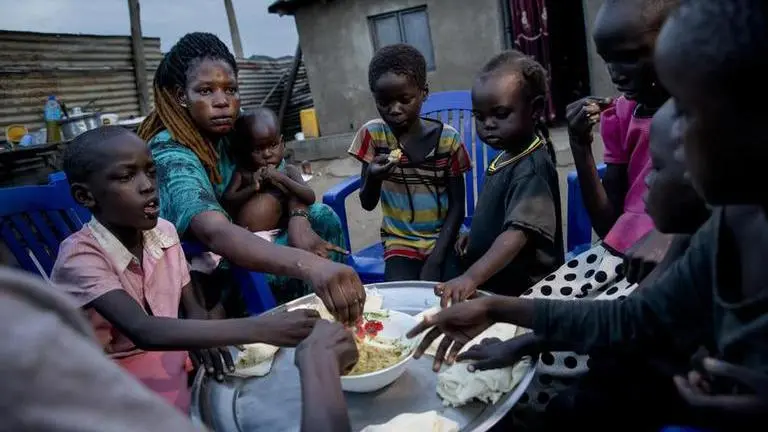Updated 16 September 2021 at 14:02 IST
South Sudan facing highest levels of food insecurity since independence, says UN official
UN official said on 15 September that people in South Sudan are presently facing the highest levels of food insecurity recorded since its independence.
- World News
- 2 min read

While South Sudan continues to battle for stability, ten years after independence, a United Nations (UN) official said on 15 September that people in the North African nation are presently facing the highest levels of food insecurity recorded since separating from Sudan. As per Xinhua report, Director for operations and advocacy at the UN Office for the Coordination of Humanitarian Affairs, Reena Ghelani, has estimated that out of 12.78 million in South Sudan, over 60 per cent people face acute food insecurity.
Her remarks followed the UN estimating in December last year that 2.4 million people faced emergency levels of severe food insecurity. Additionally, Ghelani told a UN Security Council (UNSC) in a briefing on the humanitarian situation in South Sudan that between April and July 2021, around 1,08,000 people faced catastrophic levels of food insecurity. She noted that the same period witnessed the height of the lean season.
She noted that the combined repercussions of “conflict, climate shocks, displacement, the socio-economic impact of COVID-19, and the lack of investments in infrastructure and basic services” have further pushed the people in South Sudan deeper into need. Ghelani reportedly stressed that over 8.3 million people require urgent humanitarian assistance including 1.4 million children.
4.4 mn people need assistance
The UN official also revealed that the aid agencies have assisted some 4.4 million people across the country between January and June 2021 with essential items like food, medical and nutritional care, water and sanitation among other help. Ghelani stated that notwithstanding the gains by agencies, there has been limited change in the behaviour of the non-state armed groups and certain youth groups that continue to hamper the access. She said, since the beginning of 2021, four aid workers have died while carrying out their duties and more than 170 workers were forced to relocate amid security threats.
Advertisement
She told the UNSC briefing that destruction and looting of the humanitarian facilities have also continued, including the looting of more than 1,000 metric tons of food worth over US$1 million. The frequent attacks on civilians as well as the humanitarian convoys and roadside ambushes have disrupted operations triggering an increase in the prices of essential goods for the population which is already vulnerable, she concluded.
(IMAGE: AP)
Published By : Aanchal Nigam
Published On: 16 September 2021 at 14:02 IST
